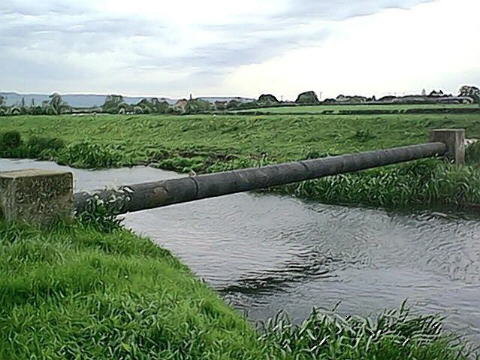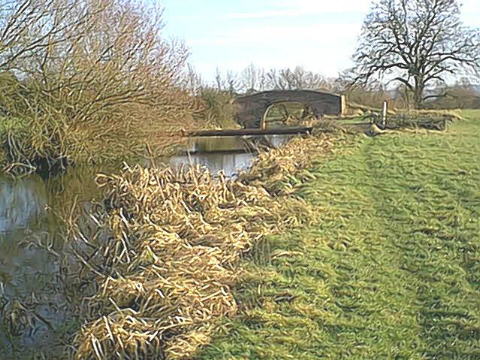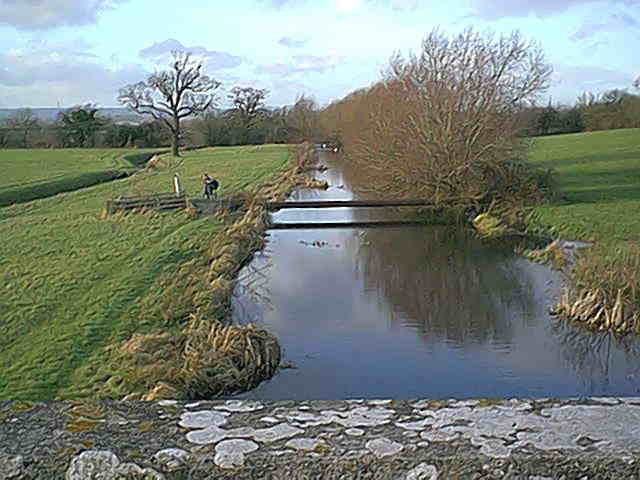| Key Dimensions |
|||||
| Existing Structure: |
Width at water |
n/a |
|||
| Headroom |
<1m |
||||
| Proposed Replacement: |
Drop Pipeline Below Navigation |
||||
| Owner |
MOD |
 MOD Pipeline over Frome
MOD Pipeline over Frome MOD Pipeline over Canal from west
MOD Pipeline over Canal from west MOD Pipeline from Occupation Bridge
MOD Pipeline from Occupation Bridge